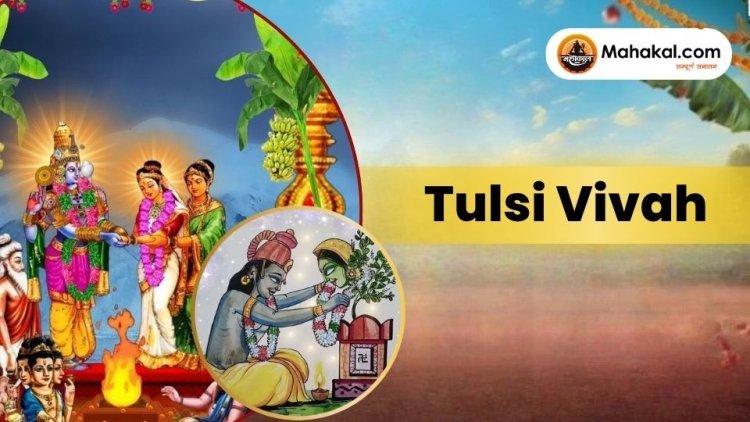Tulsi Vivah: The Sacred Marriage of Tulsi and Lord Vishnu
Tulsi Vivah is a sacred Hindu festival celebrating the marriage of Tulsi plant and Lord Vishnu, symbolizing purity, devotion, and the wedding season.

Tulsi Vivah is a celebrated Hindu festival that marks the ceremonial marriage of the Tulsi plant (holy basil) with Lord Vishnu or his symbolic form Shaligram. This festival marks the end of the monsoon season and the beginning of the wedding season in Hindu culture. It is observed between Prabodhini Ekadashi and Kartik Purnima in the Hindu month of Kartik.
The Mythological Story of Tulsi Vivah
According to Hindu mythology, Tulsi was originally a woman named Vrinda, the devoted wife of the demon king Jalandhar. Due to Vrinda’s unwavering devotion, Jalandhar was invincible. To help the gods defeat him, Lord Vishnu disguised himself as Jalandhar, which broke Vrinda’s devotion, leading to Jalandhar’s death by Lord Shiva. Heartbroken, Vrinda cursed Vishnu to become a black stone (Shaligram) and immolated herself. From her ashes grew the sacred Tulsi plant. Lord Vishnu then promised to marry her in his Shaligram form, symbolizing their eternal union .
Significance of Tulsi Vivah
Tulsi Vivah symbolizes purity, devotion, and the divine union between the soul and God. It is believed that performing this ritual brings prosperity, happiness, and harmony to the household. Tulsi is regarded as an incarnation of Goddess Lakshmi, making the festival highly auspicious .
Rituals and Customs
-
The Tulsi plant is bathed, adorned with clothes and jewelry to look like a bride.
-
A mandap (wedding canopy) is set up, and the Shaligram or Vishnu’s idol is dressed as the groom.
-
Traditional wedding rituals, including chanting of mantras, are conducted by priests or family elders.
-
The bride (Tulsi) and groom (Shaligram) are tied with a cotton thread, signifying their eternal bond.
-
Devotees fast until the ceremony and distribute prasad (sacred offerings) afterward .
Tulsi Vivah is not just a ritual but a profound spiritual event celebrating faith, love, and righteousness. It marks a new beginning symbolizing the triumph of devotion and purity in life. The festival strengthens communal bonds and reinforces the significance of tradition in modern life.
What's Your Reaction?















